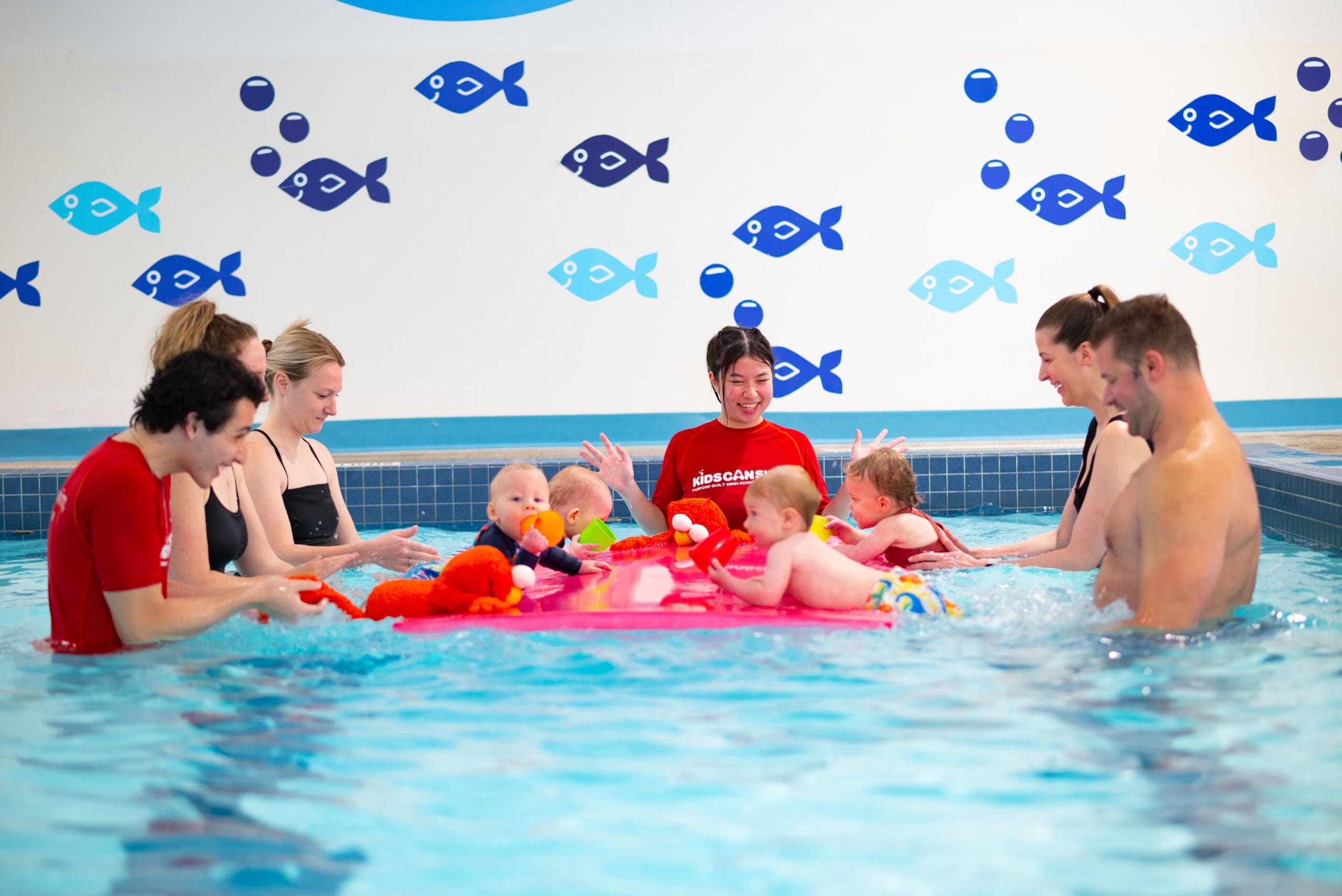
Why Every Child Should Learn to Swim Early?
Learning to swim early helps children develop water safety skills, confidence, and
coordination. Discover why early swim lessons are one of the most important gifts you can give your child.
A Life Skill That Builds Confidence, Safety, and Strength from the Start
When we think of childhood milestones—first steps, first words, first day of school—we often overlook one of the most vital: learning to swim. Yet swimming isn’t just a fun extracurricular; in Canada, where lakes, pools, and coastlines abound, it’s a lifesaving skill.
At KidsCanSwim, we believe that every child deserves access to quality, early swim education. Today, we will break down why starting early matters—and how it positively impacts everything from safety to self-esteem.
- Drowning Is Preventable—and Early Swim Lessons Make a Difference
Drowning is the second leading cause of preventable death for Canadian children under the age of 10. While that statistic is sobering, it’s also a call to action. Research from the Canadian Red Cross shows that children who participate in formal swim lessons reduce their risk of drowning by up to 88%.
What does this mean for parents? That early swim education isn’t optional—it’s essential. At KidsCanSwim, our approach introduces children to the water as early as 4 months, building a foundation of comfort, skill, and respect for water from day one.
- Children Learn Faster—and Retain More—When They Start Young
Kids under the age of 6 are developmentally primed to absorb new skills. Their brains are wired for imitation, exploration, and repetition—three key elements in effective swim instruction. Early exposure makes children more adaptable, helping them master water safety faster and with less fear.
In fact, studies show that preschool-aged kids who swim:
- Develop motor skills ahead of their peers
- Demonstrate better balance and coordination
- Show improved spatial awareness and focus
By starting early, kids not only learn to swim more efficiently—they’re also more likely to
become strong, confident swimmers for life.
Swimming Teaches Safety Through Repetition and Play
At KidsCanSwim, we understand that kids learn best when they’re having fun. Our curriculum is designed around play-based learning, so kids can practice safety techniques—like floating, turning, and reaching for the wall—in a way that feels natural and engaging.
Some of the key skills we teach from an early age include:
- Back floats (learning to breathe and wait for help)
- Kicking and paddling (basic self-propulsion)
- Climbing out of the pool (essential for safety independence)
- Understanding pool boundaries and listening to swim cues
These aren’t just water skills—they’re life skills that teach kids how to respond in high- pressure situations.
- Confidence in the Pool Builds Confidence on Land
Swimming helps kids feel strong, brave, and capable. For many children, the pool is one of the first places they realize: “I can do this on my own.” That independence can ripple out into other areas of life—whether it’s starting daycare, making new friends, or learning to ride a bike.
Our instructors often hear stories from parents about how swim lessons have:
- Reduced anxiety in new settings
- Helped with transitions, like starting school
- Encouraged more risk-taking in a safe, controlled way
There’s a reason confidence is part of our core mission at KidsCanSwim—because
swimming is about more than strokes; it’s about self-trust.
From backyard pools to weekend trips at the lake, Canadians are surrounded by water. That makes water safety a national priority. Enrolling your child in early swim lessons gives them a lifelong layer of protection—not just for swimming pools, but also for beaches, rivers, cottaging, and even unexpected emergencies
